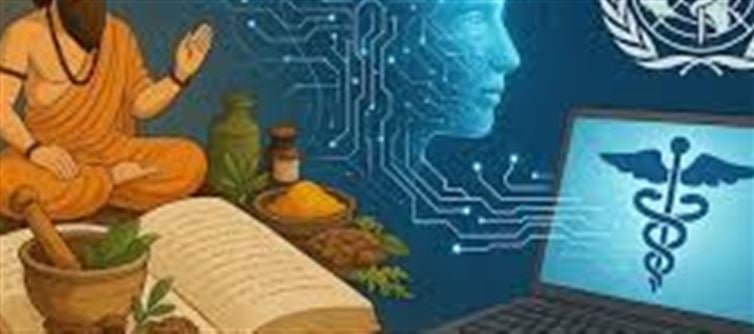
New Delhi: In a major step to revive and promote India’s ancient knowledge systems, the National Council of Educational Research and Training (NCERT) has introduced chapters on Ayurveda in the science curriculum for classes 6 to 8. This move aims to familiarize students with the principles of India’s traditional medicine from an early age.
What students Will Learn
The new curriculum will cover:
- Basics of Ayurveda: Understanding the concept of balance in the body, the three doshas (Vata, Pitta, Kapha), and the holistic approach to health.
- Herbal Remedies and Nutrition: Introduction to common herbs, plants, and dietary practices used in Ayurvedic treatments.
- Preventive Healthcare: Teaching children simple lifestyle habits, yoga practices, and mindfulness techniques that promote wellness naturally.
- Integration with Modern Science: How ayurveda complements modern medicine in maintaining health and preventing diseases.
Why This Change is Significant
This inclusion reflects a broader effort to preserve and promote India’s traditional knowledge systems. It:
- Encourages students to develop an interest in natural health and wellness.
- Builds awareness about sustainable and preventive healthcare.
- Helps integrate cultural heritage into modern education, making learning more holistic and rooted in India’s traditions.
Impact on Students
By introducing ayurveda at a school level, children will gain:
- An early understanding of healthy lifestyle choices.
- Knowledge of herbal remedies and natural therapies.
- A sense of pride and connection with India’s scientific heritage.
Conclusion
NCERT’s initiative to include ayurveda in school textbooks is a step toward reviving traditional indian knowledge and blending it with modern science education. This move not only educates students about health and wellness but also instills an appreciation for India’s rich cultural and scientific legacy.
Disclaimer:
The views and opinions expressed in this article are those of the author and do not necessarily reflect the official policy or position of any agency, organization, employer, or company. All information provided is for general informational purposes only. While every effort has been made to ensure accuracy, we make no representations or warranties of any kind, express or implied, about the completeness, reliability, or suitability of the information contained herein. Readers are advised to verify facts and seek professional advice where necessary. Any reliance placed on such information is strictly at the reader’s own risk..jpg)




 click and follow Indiaherald WhatsApp channel
click and follow Indiaherald WhatsApp channel